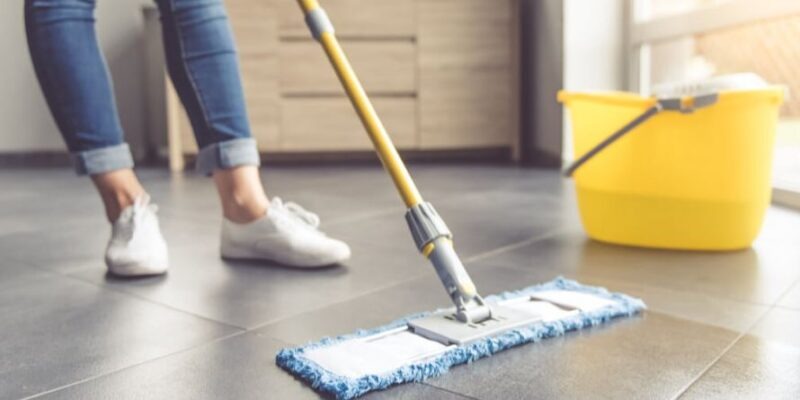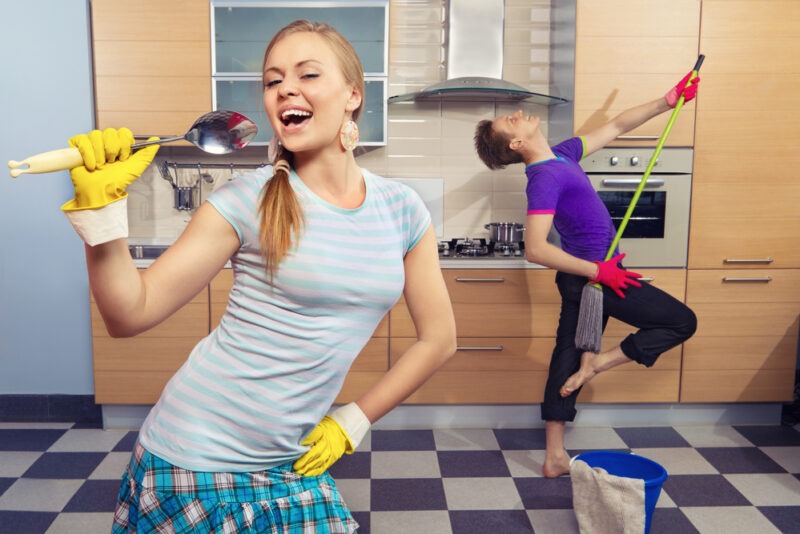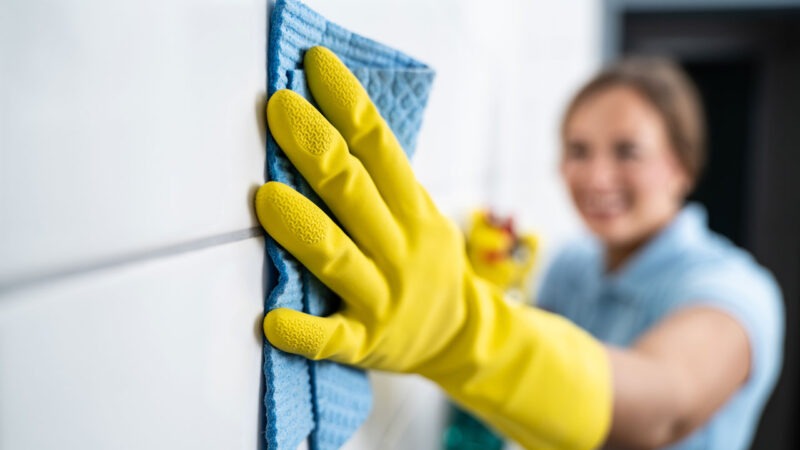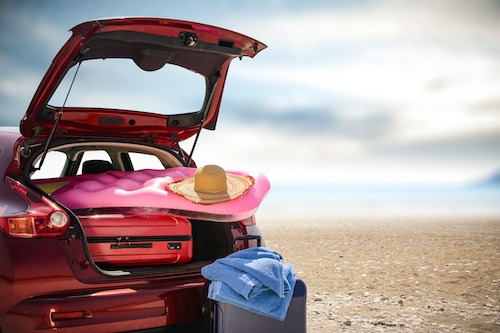Pressure cleaning involves the use of high-pressure water spray to remove dirt and unwanted particles from a range of surfaces. Also known as pressure washing, this powerful cleaning method is popular for many applications. Pressure cleaning involves specialised equipment to transform regular water flows into high-pressure water jets. This highly efficient and effective form of cleaning is a favourite among business and homeowners of all sizes.
All about pressure cleaning
Pressure washing is a great way to clean outdoor areas, including driveways, pathways, patios, decks, outdoor furniture, BBQs, and playsets. It can also be used to clean fences and retaining walls, parking lots, roofs, and gutters. Pressure washing equipment comes in all shapes and sizes, and most tools can be adjusted for power and sensitivity. Pressure cleaners can also be used on boats, cars, and other vehicles, although it may be necessary to adjust the pressure settings.
How does pressure cleaning work?
Pressure cleaning equipment can remove a wide range of debris, including dust, dirt, mud, grime, mould, and loose paint. It can also be used to remove graffiti and prepare surfaces for a new coat of paint. Due to the focused application and sheer power involved, this form of cleaning is much faster and more efficient than manual scrubbing. From concrete driveways and tiled outdoor areas to timber flooring and building exteriors, pressure cleaning is the best way to make your home look like new.
See the benefits of pressure washing for yourself
If you’re thinking about cleaning your home with a pressure cleaner, it makes sense to call in the experts. While small domestic machines are available to purchase, they can be expensive and often compromise the final result. In most cases, pressure washing is much more effective with commercial equipment and professional application. In addition, most homeowners are unfamiliar with pressure cleaning, and specialised devices can cause damage to materials and surfaces when incorrectly used. If you want professional results without compromise, Jim’s Cleaning is here to help.
FAQs
How does a pressure cleaner work?
While pressure cleaners achieve outstanding results, they are fairly simple machines. A specialised pump is used to transform a regular water stream into a high-pressure jet, with the whole process powered by an electric or petrol motor. A water inlet is connected to the main water supply via a hose, and a filter is used to prevent dirt and debris from entering the system. The pump sucks regular water in and squirts it back out through a high-pressure hose and dedicated cleaning attachment. Depending on the job at hand, this could be a standard trigger gun, a spinning wand, a rotating brush or a powered attachment.
How does detergent improve the pressure cleaning process?
While pressure washers function mainly through kinetic energy or sheer power, detergent is also used to enhance the process. The combination of water and soap helps to produce a slight electrical polarity, with water molecules sticking to debris for easy removal. Detergent flows into the machine from a bottle or container, with water coming in through a separate hose — the two liquids mix inside the water pump, where they are heated and pushed through a high-pressure exit hose. While detergent is not required for all pressure cleaners to work, it can help to improve the final outcome.
What do I need to do before pressure washing?
While pressure cleaning is a relatively simple process, some preparation is needed to protect your belongings and ensure the best possible results. Our first pressure washing tip is to remove personal items and sweep away large particles from the surface you plan to spray. If you’re trying to remove a stubborn stain, such as an oil mark on a driveway, it may be necessary to scrub the surface first before applying a specialised cleaning solution. A bottle of spray degreaser may be useful in this situation, but it depends on the material involved. In most cases, it’s best to organise pressure washing services from the experts.
How do you pressure wash effectively?
Pressure cleaning doesn’t have to be difficult, but a few simple pressure washing tips can significantly improve the process. To ensure the most effective and efficient cleaning, it’s essential to prepare the area, wear eye and hearing protection, and use both hands to keep the cleaning wand under control.
Whether you work top-to-bottom or side-to-side depends on the application. But in most cases, it makes sense to follow a linear path so you can see what you’re doing. It may be necessary to go over certain areas multiple times, so remember to remove excess water and look closely to ensure nothing has been missed.
How long can you continuously run a pressure washer?
When running a pressure cleaner, it’s essential to stay safe and look after your equipment. Devices can’t be used for hours on end, with the water pump and motor both heating up over time. Time for the pressure cleaner to cool down is necessary after extended use, but this period varies considerably between machines. For example, while light-duty pressure cleaners are fine for occasional cleaning duties, these 2,000 psi and under devices are not meant for large jobs.
Medium-duty and heavy-duty pressure cleaners are also available, with the former offering water pressure levels between 2,000 and 2,800 psi and the latter offering pressures of 2,900 psi and over. Commercial washers can go above this level, with their extra-heavy-duty engines designed to handle large multi-hour jobs.
What is the recommended psi for cleaning concrete with a pressure cleaner?
Cleaning concrete driveways and pathways is a common task for pressure cleaners, but you need to have the right equipment for the job. Concrete is a tough, abrasive material, and it can require water pressure levels above 2,500 psi. While tile surfaces can be cleaned with as little as 1,500 psi and timber decking at even lower levels, concrete surfaces demand much more power.
Along with sufficient pressure, it’s vital to ensure you have access to a high water flow rate. No matter the surface you’re cleaning, it’s important to adjust the washer’s psi to an appropriate setting to avoid damaging the surface. If you’re unsure about any aspect of preparation or application, the job might be best for the experts.
Does pressure cleaning work on bricks?
Pressure cleaning works on a wide variety of surfaces, including household and commercial bricks. From exterior walls to brick patios, pathways, and driveways, bricks clean up very nicely thanks to water pressure. However, they can also be sensitive, so it’s vital to ensure you’re using the correct pressure setting. This is especially true for high-pressure washers or power washers, which are powerful enough to carve into brick and damage materials if you’re not careful. If you want to clean your brick home or backyard areas, Jim’s Cleaning is here to help.
What do your pressure cleaning services involve?
Jim’s Cleaning offers a wide array of pressure cleaning services across Australia. From tough concrete surfaces to bricks, decking, vehicles, and more, we combine advanced equipment with experienced professionals to ensure the perfect finish. We specialise in residential and commercial buildings, driveways and pathways, mould and dirt removal, concrete cleaning, roofs and gutters, fascia and eaves, outdoor areas, tiled spaces with grout, and graffiti removal services. With a range of high and low-pressure cleaning services, we will leave your home looking like new.
At Jim’s Cleaning, we are fully insured for your complete protection, our staff are trained and police-checked, and we provide a Jim’s Work Guarantee. If you want to access professional pressure washing services, please contact Jim’s Cleaning for a free quote today.



